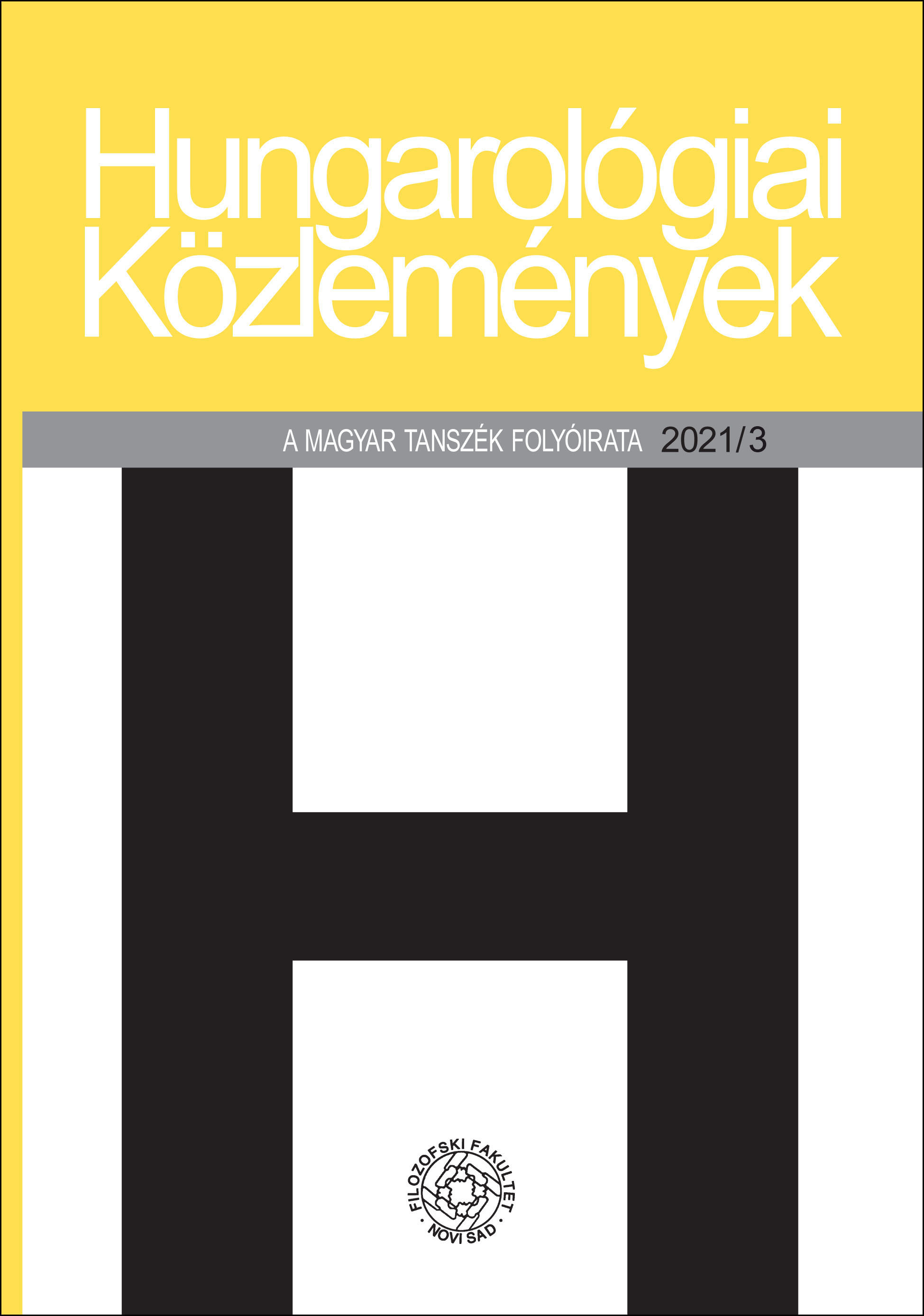EGY KÖZTESSÉG MEGHATÁROZÁSA
Markó Béla első két kötetének verseiről
Absztrakt
Markó Béla korai költészete két generációs poétika közöttiként írható le. Első verseskötetét 1974-ben jelentette meg, egy olyan időszakban, amikor a romániai politikai helyzet fontos változásokon ment keresztül. A kései hatvanas évek liberálisabb politikai helyzete után az 1970-es évek romániai politikája fokozatosan újra egy sztálinista típusú kultúrpolitikát eredményezett, amelyet leginkább a nemzeti kommunizmus terminusával szokás leírni. Markó költészete erre a változásra egyfajta dezillúziós modalitással reagál, korai költészete pedig úgy írható le, mint amely egyfajta nosztalgikus, közösségorientált poétika ihletése felől egyre inkább egy avantgárd képiség és reflexív költészetszemlélet felé mozdul el. A tanulmány ezt a változást a korai Markó-kötetek recepciójának összefüggésében vázolja fel.
Hivatkozások
Bretter György. 1969. Költészet és felelősség. Igaz Szó 17 (12): 923‒928.
Elek Tibor. 2014. Markó Béla költői világa. Csíkszereda: Bookart. Farkas Árpád. 1974. Túl a mondaton. Igaz Szó 22 (10): 325–326. Markó Béla. 1974. A szavak városában. Bukarest: Kriterion.
Markó Béla. 2000. Szétszedett világ: Egybegyűjtött versek (1967‒1995) . Marosvásárhely: Mentor.
Mózes Attila. 1975. Fiatal költők ürügyén. Korunk 34 (11): 861‒864.
Mózes Attila. 1977. A jelkép megválasztása és meghatározó jellege. Utunk 32 (48): 2.
Székely János. 1977. Az értelmezés kísértései. Igaz Szó 25 (12): 617–620.
Szőcs Géza. 1974. Tetteink növényágya. Utunk 29 (31): 2.








